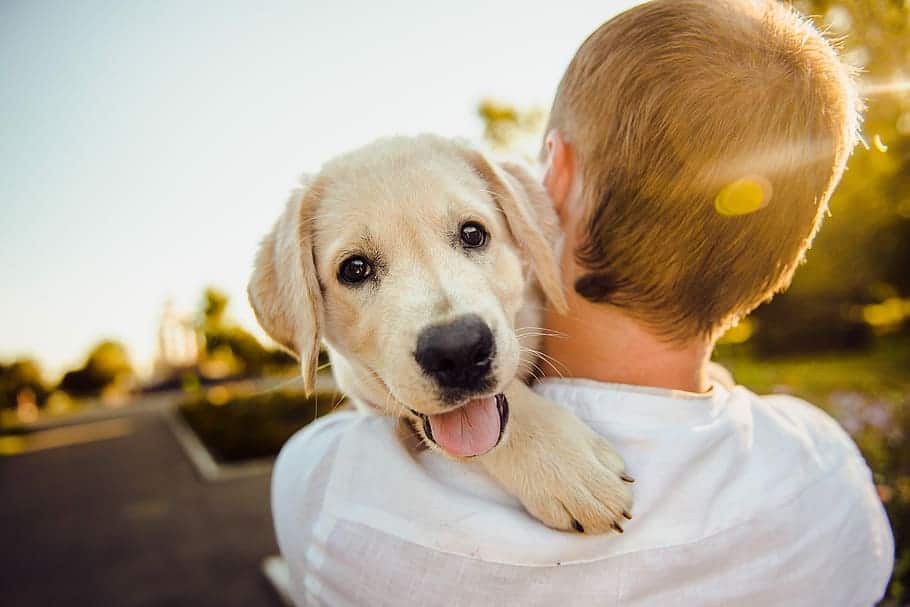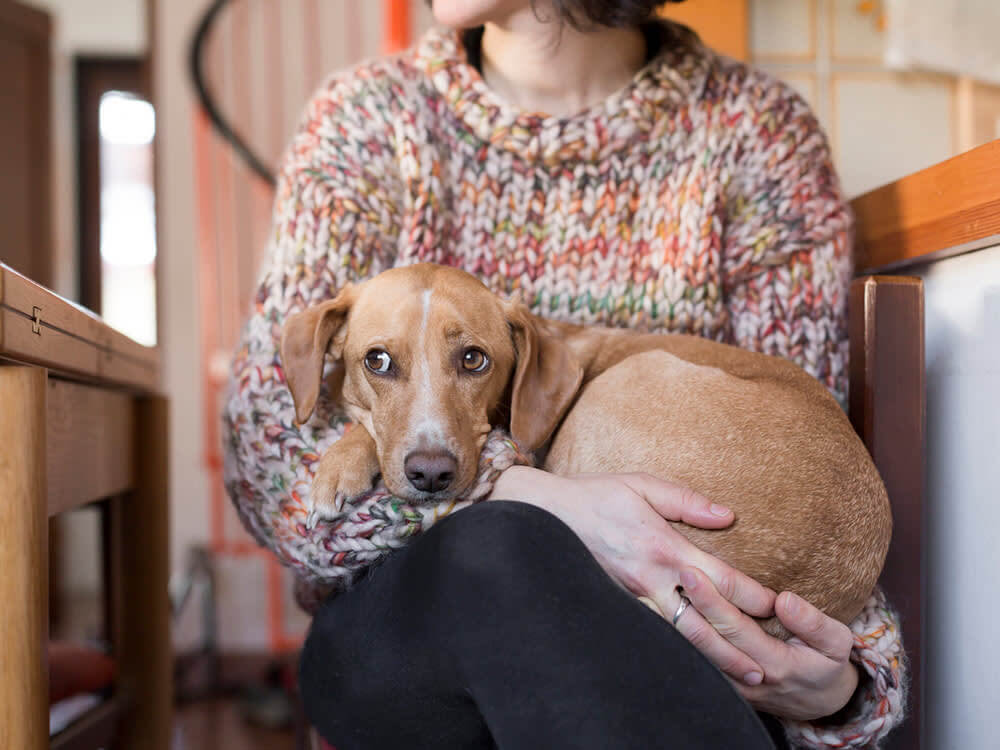Bringing a dog home from a rescue center is always a fulfilling endeavor, as it offers the dog a second chance at a happy life.
However, not every adoption turns out to be a perfect match, and sometimes, returning a dog to a rescue center becomes the only option for the adopter.
While rescue centers make every effort to pair dogs with appropriate owners, unforeseen challenges can arise.
This might lead you to question whether you can return a rescue dog.
Specifically, you may wonder:
Do Rescue Centers Accept Dogs Back?
Indeed, most rescue centers do accept dogs back if an adoption doesn’t prove to be a perfect match. This ensures that dogs have the opportunity to find new homes that might be a better fit for their needs.
See, rescue organizations are driven by their mission to ensure the well-being of the dogs they rescue.
They have a vested interest in every dog they rescue and accepting them back is a perfect example of the steps they take to ensure that the dogs find new qualified homes.
They understand that while most adoptions are successful, there are instances where a dog’s needs might not be fully met, leading to the consideration of a return.
If anything, some rescue centers have written contracts that require adopters to return the dogs if an adoption doesn’t work out.
So, if you’re experiencing guilt or have concerns about returning your dog to a rescue center, rest assured that you shouldn’t be. This is because the majority of centers do provide the option to take back dogs that they have adopted out.
Essentially, everyone desires the best for rescue dogs. The center aims to find the ideal homes for the dogs they place for adoption, and it’s crucial to be honest if the situation isn’t working out as expected.
Returning a Rescue Dog

If you’ve made the decision to bring your dog back to a shelter or rescue facility, what steps or actions should you take?
Essentially, you should reach out to the shelter or rescue organization to inform them of your intention to return the adopted dog.
Similar to interacting with any professional organization, they might inquire about the dog and the reasons behind your decision to surrender the dog.
Certain shelters might even provide further guidance that could assist you in retaining your dog within the family. This might cover areas like training, financial aid, or options for daycare.
They might even propose seeking guidance from animal care specialists to help you to address the underlying causes leading to returning the rescue dog.
Once the decision to allow you to surrender the dog is made, and the rescue center agrees to accept the pet, you will then bring the dog to the shelter.
Circumstances under Which a Rescue Might Take Back a Dog
Speaking of decisions being made, here are the circumstances under which the majority of rescue centers would consider taking back an adopted dog:
I. Failure to Meet Adoption Agreement
Rescues often have adoption agreements that adopters must adhere to.
These agreements may include stipulations about pet care, training, and other responsibilities.
If adopters do not fulfill these requirements, the rescue might have grounds to take back the dog.
II. Safety and Welfare Concerns
If the rescue becomes aware of situations where the dog’s safety and well-being are compromised, they may step in to protect the animal.
This could involve neglect, abuse, or other dangerous environments.
III. Behavioral or Medical Issues
Some rescues may have a return policy in place if the dog develops severe behavioral or medical problems that the adopter is unable to address.
IV. Change in Circumstances
Life can be unpredictable, and circumstances can change unexpectedly.
If an adopter faces a situation that makes it impossible to continue caring for the dog, a rescue might work with them to find a solution or potentially take the dog back.
What to Expect When a Rescue Center Agrees to Take Your Dog Back
When a rescue center agrees to take back your dog, there are several things you should anticipate, including:
- Associated Fees: You might be requested to cover certain costs related to the process. This fee helps to offset expenses incurred by the rescue center.
- Paperwork Completion: Expect to complete paperwork that officially transfers the dog’s care back to the rescue center. This documentation ensures a clear record of the transition.
- Veterinary Records: Some rescue centers may require copies of veterinary records or any notes pertaining to the time you cared for the dog. This information aids in understanding the dog’s medical history.
- Temporary Delay: If the rescue center is currently operating at full capacity, you might need to wait a bit longer before they can accommodate the dog. Alternatively, they may request you to place the dog in another foster care arrangement.
- Potential Outcomes for the Dog: After the surrender, various outcomes are possible for the dog. These range from being at risk of euthanasia to potentially developing aggressive behavior, which can reduce the chances of readoption. However, there’s also the possibility of the dog finding a new and perfect forever home.
Understanding these expectations can help ensure a smoother process as you work with the rescue center to provide the best outcome for the dog.
Alternative to Returning the Dog to a Rescue: Rehoming the Dog Yourself

As I have highlighted above, several things can happen after you’ve surrendered the dog, including situations where the rescue center is at full capacity, the possibility of euthanasia, or challenges in finding a new adopter.
In such cases, an alternative to returning the dog to a rescue center is to take the initiative to find a new home for the dog within your personal network of friends and family.
And if you suspect that the dog can be euthanized, consider relocating him to a foster family or a no-kill shelter, especially if you can help with some costs until the dog finds a new home.
But avoid hasty decisions like posting the dog on social media or giving it away for free.
Such actions might expose the dog to individuals involved in illegal activities, such as dog fighting.
To ensure the dog’s safety, consider charging a reasonable rehoming fee and conducting thorough background checks on potential adopters.
You may also want to check: Can I Get My Dog Back After Rehoming?
It’s Not Your Fault If You Need To Return a Dog to a Rescue Center
Surrendering a dog should never be seen as admitting defeat.
Consider this: if you’ve exhausted all efforts to care for the dog and the situation still isn’t improving, surrendering might actually be the best choice.
Sometimes, it’s about adoption that wasn’t the right fit—where the wrong person is matched with the wrong dog.
Forcing things in such situations could potentially worsen matters for both sides involved.
Additionally, if your personal circumstances have changed and you’re unable to provide proper care due to financial constraints, personal health issues, or career commitments, returning the dog shows that you’re prioritizing the dog’s well-being.
Giving the dog the chance for a new home is truly a compassionate decision.
Remember, returning a dog doesn’t signify failure; rather, it signifies making a thoughtful choice in the best interest of the dog’s quality of life.
You Can Adopt Again
If you surrender a dog, can you adopt again? And is it possible to adopt another dog from the same rescue center after returning one?
The short answer is YES. If your reasons for surrendering the dog are valid and sensible, most rescue centers will readily welcome you to adopt from them once more.
So, there’s no need to hesitate about returning a dog to a rescue center out of fear that it might hinder your future adoption prospects.
No rescue center will blacklist a potential adopter due to unexpected challenges in prior adoptions.
Rescue centers understand that circumstances can change, life can present unexpected turns, and even with the best intentions, situations might not always unfold as planned.
As an Amazon Associate, we may receive a small commission from qualifying purchases but at no extra cost to you. Learn more. Amazon and the Amazon logo are trademarks of Amazon.com, Inc, or its affiliates.

